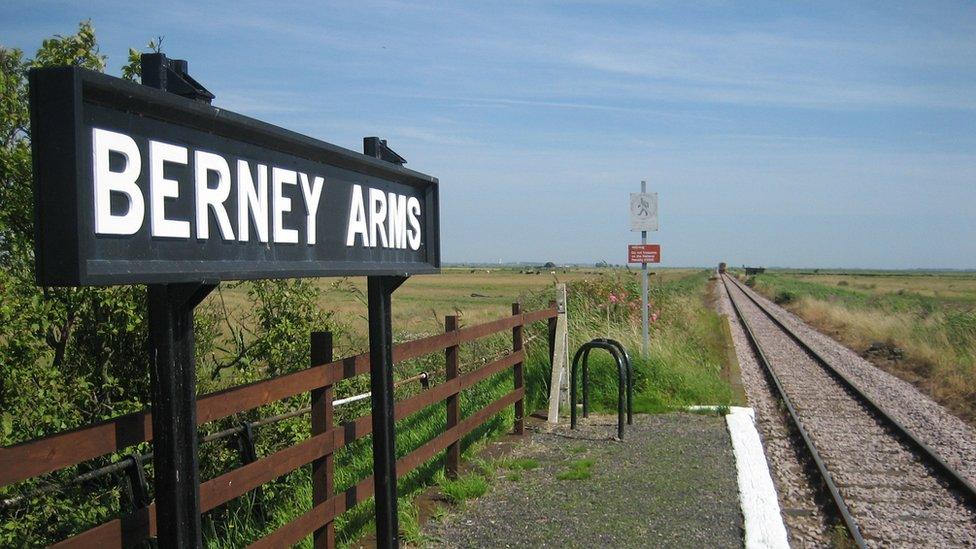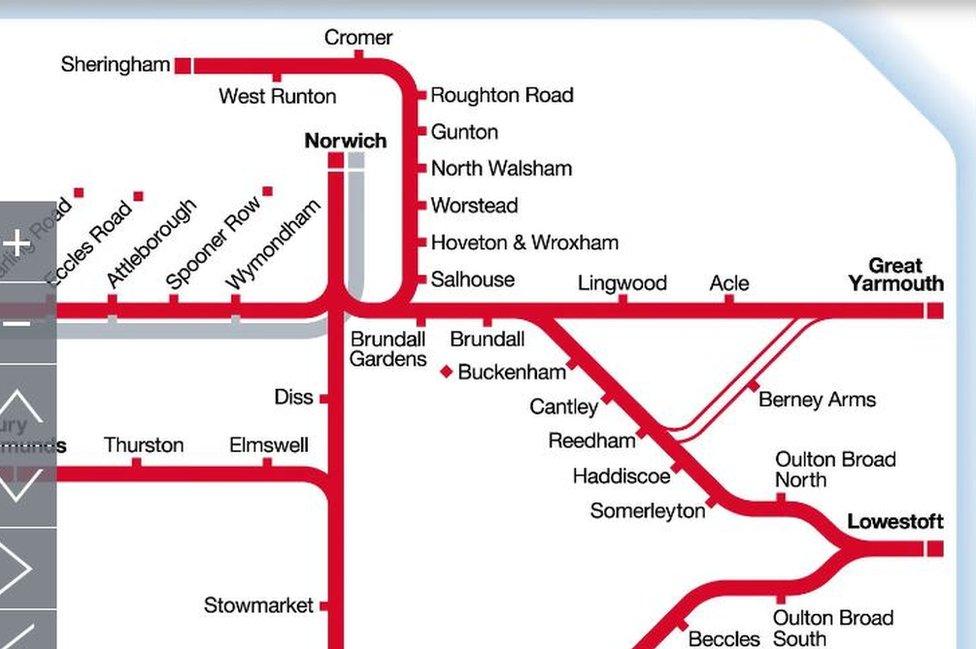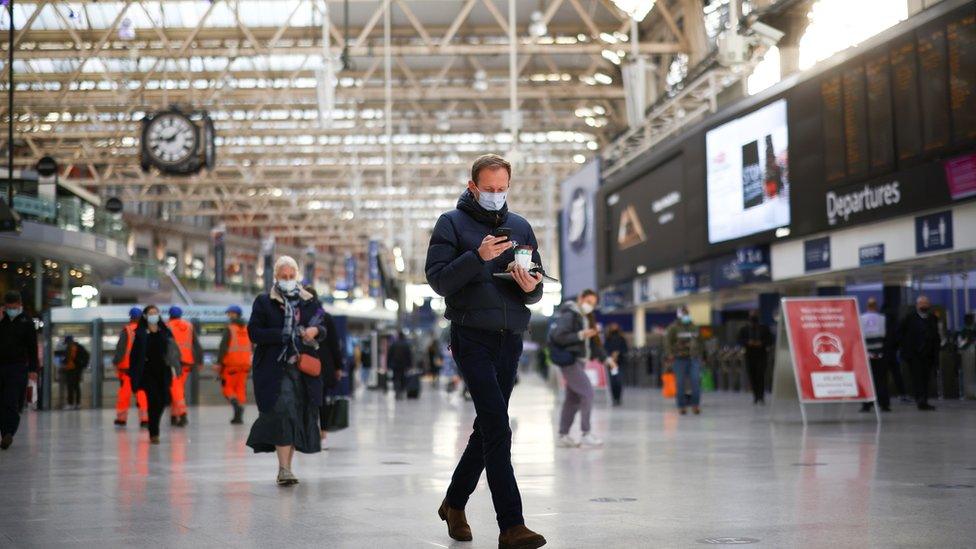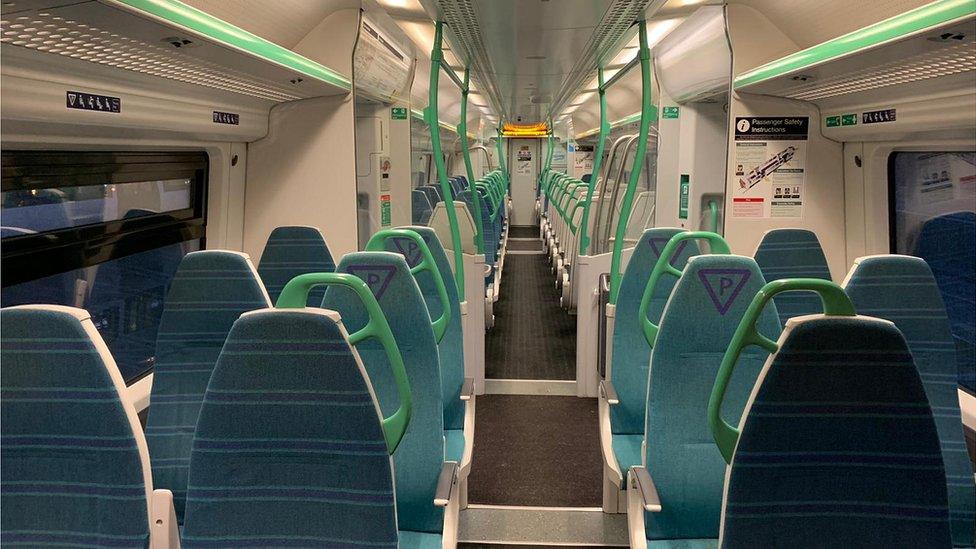Berney Arms: Britain's quietest railway station used just 42 times
- Published

Berney Arms in Norfolk was used by just 42 passengers
A rural platform without a car park was the least-used railway station in Britain in the past year, the Office of Rail and Road said.
Berney Arms in Norfolk had just 42 passengers between April 2019 and March 2020.
The station, which is only accessible on foot, is a request stop on the line between Norwich and Great Yarmouth.
Cambridge was the busiest station in the East, while London Waterloo was the busiest station in the country.
The previous year's least-used stations were Denton in Greater Manchester and Stanlow & Thornton in Cheshire, where both recorded 46 passengers.
Three years ago, the least-used station was Shippea Hill on the Cambridgeshire/Norfolk border:
Much like buses, passengers wanting to board, external at Berney Arms have to stick an arm out, and to alight they must "inform the conductor or the driver of your intentions in good time".
The station is close to the River Yare and surrounded by the RSPB's Berney Marshes and Breydon Water, external reserve.
It was named after a nearby pub, which has been closed for five years.

Berney Arms is the only station on its section of the Greater Anglia network, defined as a "limited service route"
The passenger numbers at Berney Arms were down 90% on the previous 12 months as the lines serving the station were closed for most of the period due to work to upgrade signalling.
Waterloo had a 7.3 million year-on-year decrease in the number of passengers - dropping to 86.9 million.

Waterloo was Britain's busiest station but numbers were down due to Covid-19 restrictions
The decline was attributed to strike action and the start of the coronavirus pandemic lockdown.
Jay Symonds from the Office of Rail and Road said there had been a "dramatic decline in passenger numbers towards the end of March due to Covid-19".
"With numbers staying at historically low levels during 2020, there is no doubt that next year's figures will look a lot different," he added.

Find BBC News: East of England on Facebook, external, Instagram, external and Twitter, external. If you have a story suggestion email eastofenglandnews@bbc.co.uk
- Published25 September 2020
